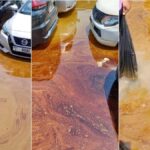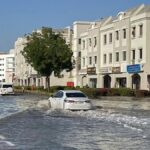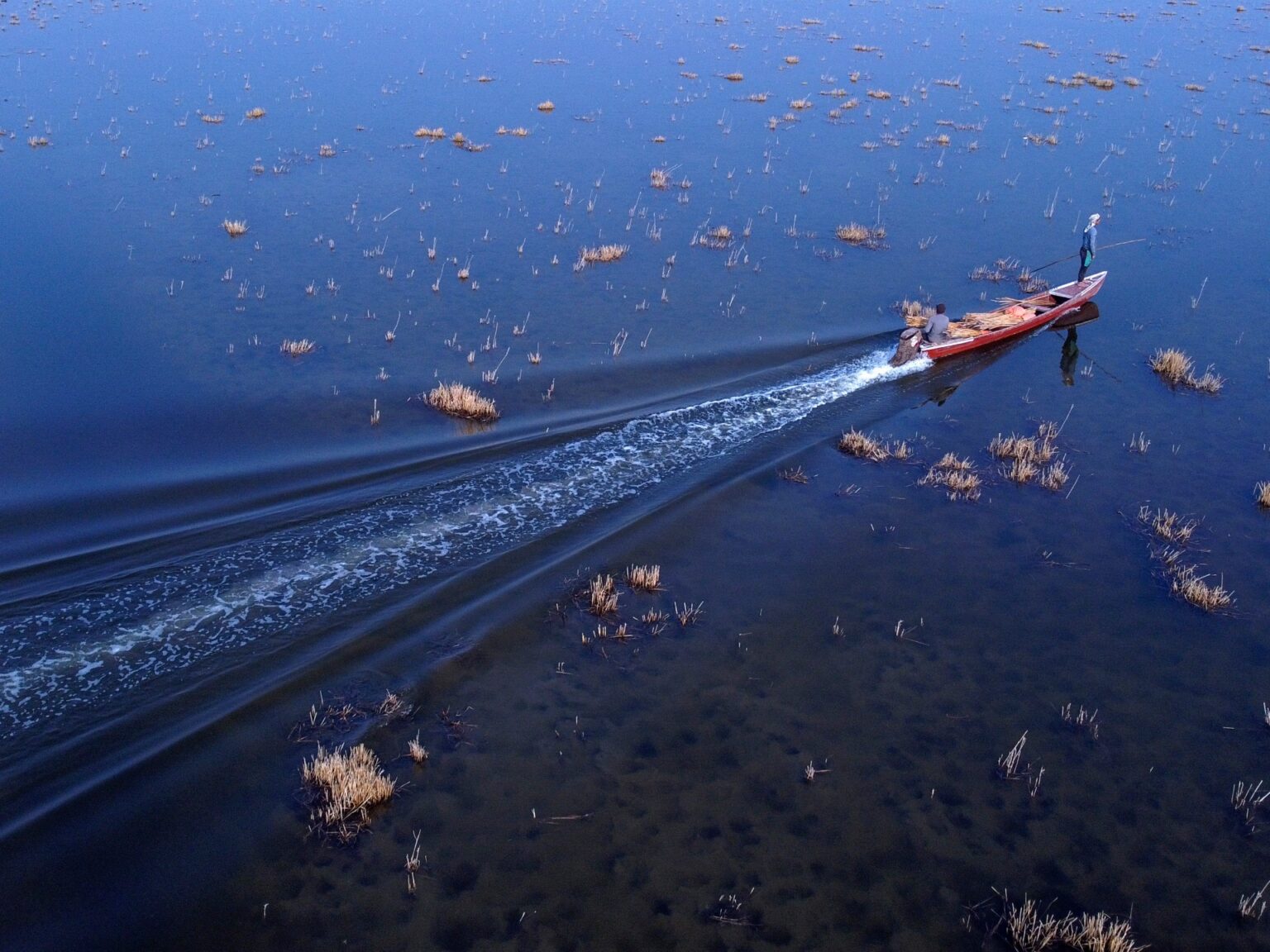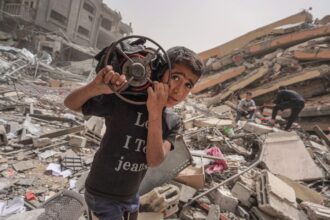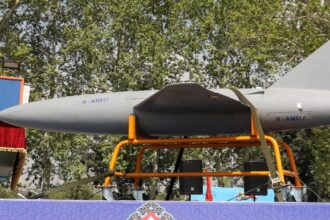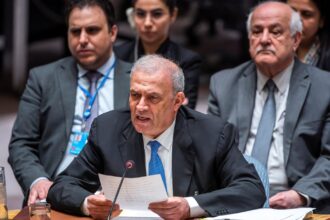Black buffaloes wade through the waters of Iraq’s Mesopotamian marshes, leisurely chewing on reeds. After years of drought, winter rains have brought some respite to herders and livestock in the famous wetlands.
Listed as a UNESCO World Heritage Site, the marshes were parched and dusty last summer by drought in the climate-stressed country and by reduced flow from the Tigris and Euphrates rivers due to dams built upstream in Turkey and Iran.
Winter brings seasonal rains, offering relief in marshes like those of Huwaizah – which straddles the border with Iran – and Chibayish, located in nearby Dhi Qar province.
Among the reeds of Chibayish, buffalo farmer Rahim Daoud now uses a stick to punt his boat across an expanse of water.
“This summer, it was dirt here; there was no water,” said the 58-year-old. “With the rain that has fallen, the water level has risen.”
In October, an official in the impoverished rural province of Dhi Qar said that in the previous six months, 1,200 families had left the marshes and other agricultural areas of southern Iraq and more than 2,000 buffaloes had died.
Iraq has faced three consecutive years of severe drought and scorching heat, with temperatures regularly exceeding 50 degrees Celsius (122 degrees Fahrenheit) during the summer of 2022.
“There is a gradual improvement,” Hussein al-Kenani said after the recent rains.
Kenani, who heads the governmental centre in charge of protecting the wetlands, said rainwater collected in canals and rivers has been redirected to the marshes.
“The water level in Chibayish’s swamps has increased by more than 50cm [20 inches] compared with December and by more than 30cm [12 inches] for the Huwaizah swamps,” Kenani said.
In July, the United Nations Food and Agriculture Organization deplored the “unprecedented low water levels” in the marshes, highlighting “the disastrous impact” for more than 6,000 families, whose buffaloes and livelihoods were being lost.
The relief of rainfall was welcomed by the UN agency, which noted in a statement that in the Chibayish region “salinity levels decreased” to the point where people and animals could again drink the water.
“This has had a great positive impact, especially on buffalo herders,” it said.
While the crisis has been relieved for now, there are fears about the longer-term fate of the threatened wetland habitat.
“There is not enough water coming from the Turkish side,” said Jassim al-Assadi, head of the environmental group Nature Iraq, who added that Iraq’s dams upstream from the marshes “do not have an adequate and sufficient reservoir for the rest of the year”.
“The rains alone are not enough,” he said, voicing fears about another looming “problem next summer”.
Read the full article here




